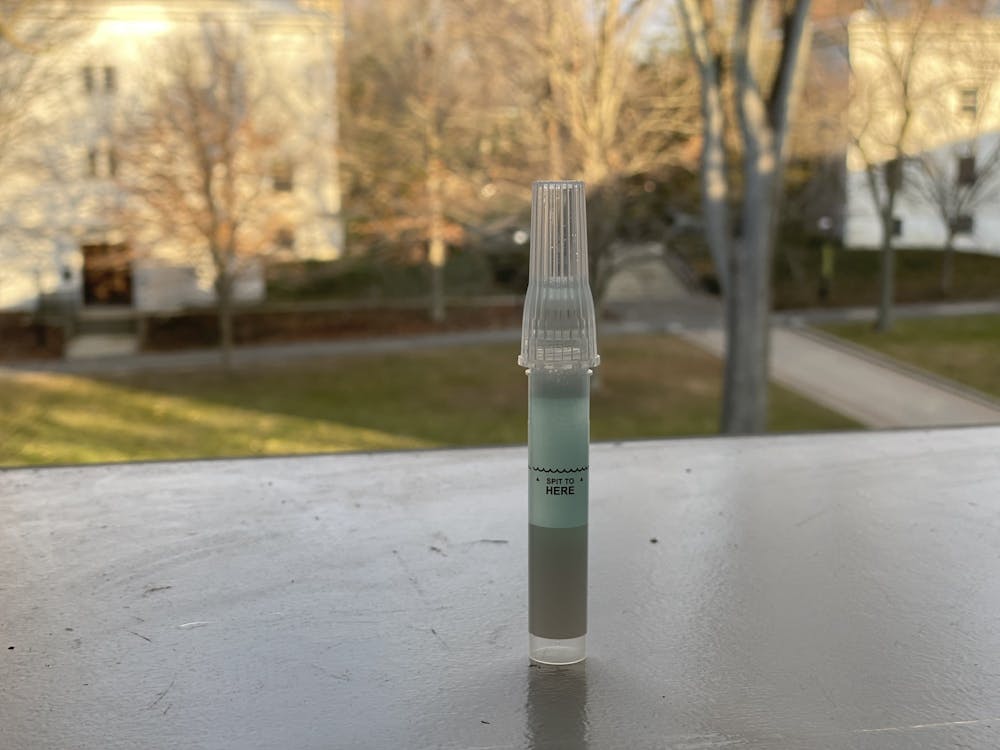For the first time since the undergraduate student body returned to campus for a full residential experience this fall, the University’s COVID-19 dashboard has classified campus risk status for the virus as “Low.”
In the week ending on Oct. 1, there were zero positive COVID-19 tests reported among undergraduates, and in the week ending on Oct. 8, there was a single positive case among undergraduates. Positivity rates have been below 0.1 percent for the past month.
The University uses four categories for classifying community risk for coronavirus transmission: Low Risk, Low to Moderate Risk, Moderate to High Risk, and High Risk. Until Wednesday, Oct. 13, the classification remained at “Low to Moderate.”
The news of the “Low Risk” campus status comes with just three days remaining until the start of fall break, when many students will travel home or go on vacation.
While undergraduate international travel remains suspended, barring family emergencies or once-in-a-lifetime events such as weddings, there are currently no restrictions on domestic travel.
In an email message to the student body on Oct. 13 regarding fall break travel, University health officials noted that while current guidance instructs students to “continue to wear a face covering indoors,” this may change in the near future.
“If we remain vigilant and the campus positivity case rate does not increase substantially after Fall Break,” the officials wrote, “the face coverings requirement may be relaxed for vaccinated individuals in early November.”
The notice was the first indication by University administrators of the possibility of modifying masking requirements this semester. According to the University website, mitigations under a “Low Risk” classification “may include” face coverings guidance, asymptomatic testing, limiting visitors on campus, and travel restrictions — measures already in place since the start of the semester.

The change in status follows two consecutive weeks of the University reporting a 0.04 percent positivity rate on campus, where all vaccinated community members are required to submit saliva tests once a week and unvaccinated members are required to do so twice weekly. The University required community members to receive vaccines, unless they qualified for religious or medical exemptions.
In total, there were five positive tests among campus community members in the week ending on Oct. 8, including one undergraduate student and four faculty or staff members. In the previous week, four graduate students and two faculty or staff members had tested positive for the virus.
The isolation dorm is currently at five percent capacity — the lowest it has been since the start of the fall semester. According to the dashboard, as of Oct. 8, two undergraduate students and five graduate students were in isolation.
Vaccination rates among the campus community are higher than they were at the start of the semester. As of Oct. 13, 99 percent of undergraduate students, 98 percent of graduate students, and 96 percent of faculty and staff were considered fully vaccinated.

Students have previously commented on the ongoing universal indoor masking requirement in light of case rates in the low single digits. Some expressed frustration with the policy.
“I think if we’re not going to take the mask mandate off with those statistics, we’re never going to be able to take them off,” Grace Houlahan ’25 told The Daily Princetonian in late September.
Others said they feel masks are a reasonable and important ongoing public health measure.
“I do definitely think masks are essential, especially right now that there are more variants of COVID that are a lot more contagious than the previous ones,” Ivania Asencio ’23 previously told the ‘Prince.’
Marie-Rose Sheinerman is a senior writer who has reported on COVID-19 policy, faculty controversy, sexual harassment allegations, major donors, campus protests, and more. She can be reached at ms78@princeton.edu or on Twitter at @rosesheinerman. She previously served as an editor of news and features and now assists with content strategy.








